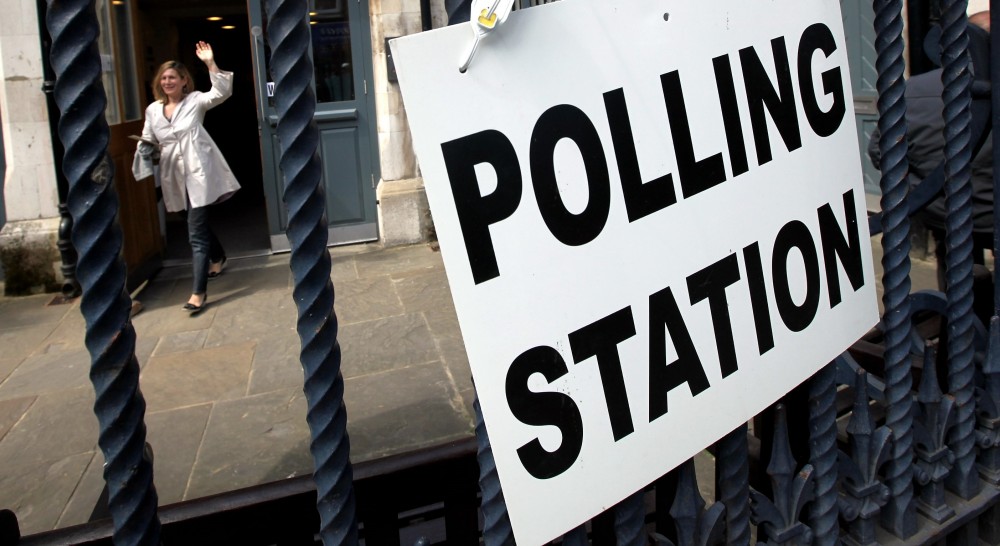Democracy for the few, or for the many?
The concept of a democracy is a simple but powerful one – in its most ideal form, it’s a state governed by the will of the people, a will that’s made clear when citizens vote in elections.
Of course, democracy as it functions in the real world, deviates, to a greater or lesser extent, from this ideal. In the UK, campaign finance influences election results. It’s a fact that’s been proven time and time and again – the more cash your party has, the greater the advantage come election time.
In the current political climate, it’s the Tories, the party of City fat cats and heirs to grand fortunes, who’ve got this undeniable edge – some sources say the party out-funds Labour by a jaw-dropping factor of 3 to 1.
Unite believes that this disparity cannot determine the outcome of the election if we are to honestly pride ourselves in a democracy that represents the interests of its citizens. That’s why Unite’s executive council agreed to donate £1.5m to the Labour party yesterday (January 29).
“The union is determined that the present government should not be allowed to float to re-election on a tide of big business cash, while Labour remains under resourced,” the executive council noted in a statement.
In an effort to level the playing field, Unite may also consider additional support in the future. These donations are separate from Unite’s affiliation fees to Labour, which were halved in 2014 to comply with the recommendations of the Collins Review.
Big business cash
While Labour faces a resource disadvantage as the election approaches, the Conservative party’s coffers are steadily being filled by an elite class of wealthy, individual donors with vested business interests.
Indeed, while Labour’s main source of funding comes from organisations that represent ordinary working people, the Tories get most of their funding from wealthy individuals.
Research conducted by Unite has found that many of these donors are hedge fund bosses, including one Michael Hintze, who according to Forbes, is the 1,016th richest person in the world.
Hintze has donated a total of almost £2m since the last general election in 2010.  He has famously argued that he enjoys gifting money because, he says, “The more you give, the more you get.”
Truer words were never spoken. In Toryland, the more you give, the more you do indeed get, as the case of Circle Holdings proves. The company has donated £1.5m to the Tory party, so it may come as no surprise, then, that Circle was the biggest winner in the health service’s systematic sell-off, winning two contracts since April worth almost £300m.
Unite general secretary Len McCluskey has argued that it is no coincidence businesses benefit from their donations.
“Tory polices, from the sell-off of our NHS to tax cuts for fracking, benefit the hedge funds. We should never forget that the Conservatives govern on behalf of the millionaires, not the millions,” McCluskey said late last year, after it was revealed that many Tory donors benefit directly from Tory policies.
Circle’s CEO, Michael Kirkwood, is also advisory director for a transatlantic business group lobbying for TTIP, the EU-US trade deal threatening to further privatise the NHS.
Other notable Tory donors include Alexander Knaster, a Russian-born American and head of Pamplona Capital Management, who has donated almost half a million pounds to the party since 2010, as well as Howard Shore, head of Shore Capital, who’s donated £543, 427 since the last election.
Rigged democracy
Â
Perhaps the only protection that we have from elections being bought outright is limits to campaign spending. But prime minister David Cameron has other ideas.
Right before the official start to the run-up of the election in May, Cameron quietly pushed through a change in the law that would increases spending limits by 23 per cent. Under the new limits, the total amount that candidates from each political party can spend has gone up from ÂŁ26.5m to ÂŁ32.7m.
Cameron changed these limits, despite the independent Electoral Commission being strongly against the move, and despite the prime minister himself pledging at the beginning of his term to “cut what is spent on the general election.”
Lucy Powell MP, who heads Labour’s election strategy, argued in a Guardian editorial that the change in the law will only benefit the Tories, who are the only party with that much money to spend in the first place.
“[The Tory party] is a party flush with big money backers but without the empathy or ideas the country needs, so they are rigging the rules of our democracy in their favour,” Powell said.
 Like
Like Follow
Follow


